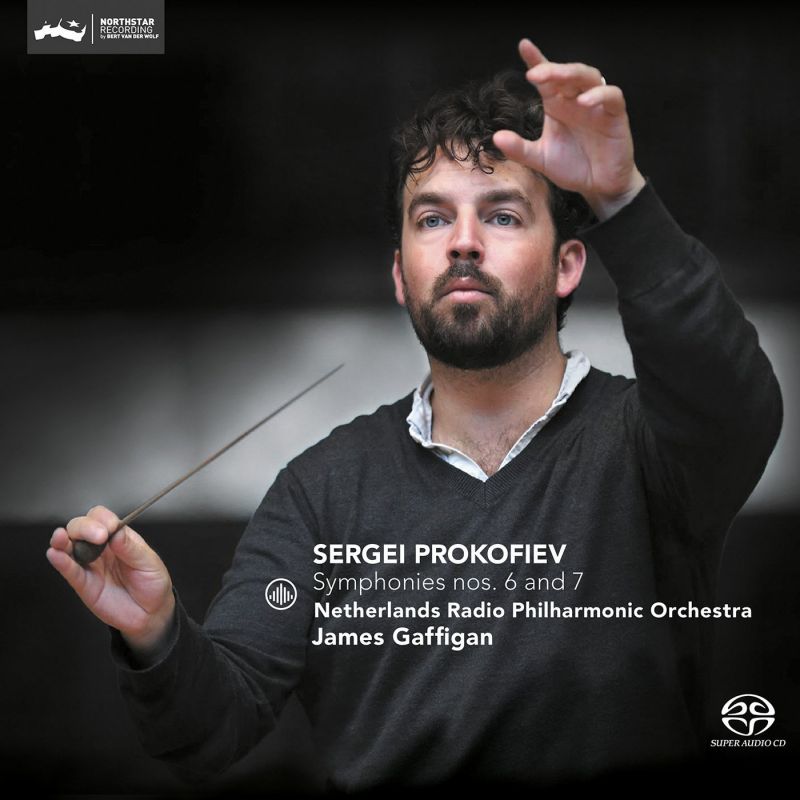PROKOFIEV Symphonies Nos 6 & 7
View record and artist detailsRecord and Artist Details
Composer or Director: Sergey Prokofiev
Genre:
Orchestral
Label: Challenge Classics
Magazine Review Date: AW16
Media Format: Super Audio CD
Media Runtime: 72
Mastering:
DDD
Catalogue Number: CC72714

Tracks:
| Composition | Artist Credit |
|---|---|
| Symphony No. 6 |
Sergey Prokofiev, Composer
James Gaffigan, Conductor Netherlands Radio Philharmonic Orchestra Sergey Prokofiev, Composer |
| Symphony No. 7 |
Sergey Prokofiev, Composer
James Gaffigan, Conductor Netherlands Radio Philharmonic Orchestra Sergey Prokofiev, Composer |
Author: David Gutman
The Sixth is at once the greatest and the most ambiguous of Prokofiev’s seven essays in the form. None of the others operates on such a plane of harmonic complexity and thematic interdependence yet, at the same time, none so directly channels personal pain and political reality. Most conductors jump one way or the other. Less than squeaky-clean in a recently reissued performance captured some in Prague 20 years after the work’s premiere, Evgeny Mravinsky is hyper-intense, projecting disquiet and discontinuity. Gaffigan prefers soft-focus glowering, emphasising instead the music’s contemplative, philosophical aspect, at least until the closing stages of the finale. Here the return of the first movement’s plaintive chant-like theme prompts a real paroxysm of grief, audibly encouraged from the podium. The final bars are then taken at a canter as indicated in the score, although Mravinsky, Neeme Järvi, Vladimir Ashkenazy, Valery Gergiev, Kirill Karabits and others opt for a more emotionally authentic slow grinding of gears.
The Seventh used to be considered slight and sunny, an impression boosted by the happy ending Prokofiev tacked on to appease Stalin’s cultural bureaucrats. Gaffigan shuns that optimistic flourish but again seems reluctant to take interpretative risks, which perhaps explains why the second movement’s abrupt pay-off falls rather flat. Go to either Gergiev account and you’ll find a much broader canvas, albeit without the benefit of such sophisticated surround sound. Challenge Classics’ accompanying booklet is full of howlers but the fine detail, richly extended bass and realistically recessed sound stage may be attraction enough.
Discover the world's largest classical music catalogue with Presto Music.

Gramophone Digital Club
- Digital Edition
- Digital Archive
- Reviews Database
- Full website access
From £8.75 / month
Subscribe
Gramophone Full Club
- Print Edition
- Digital Edition
- Digital Archive
- Reviews Database
- Full website access
From £11.00 / month
Subscribe
If you are a library, university or other organisation that would be interested in an institutional subscription to Gramophone please click here for further information.




